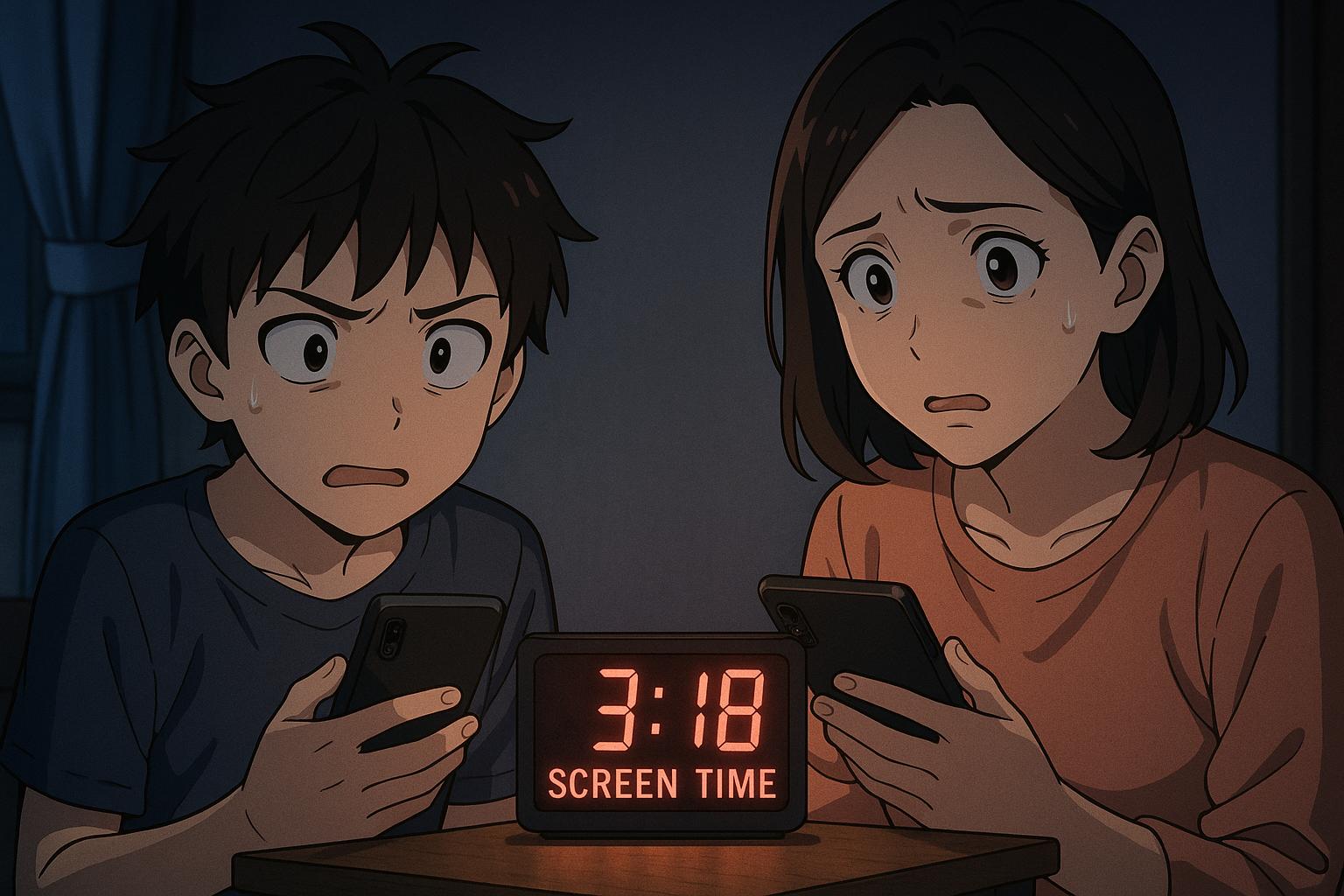Parents today are grappling with an overwhelming challenge: managing their children’s screen time. A new survey reveals that they spend approximately 96 hours each year embroiled in disputes over devices, highlighting the pervasive influence of technology in family life. The survey, conducted by Talker Research on behalf of AngelQ, involved 2,000 parents of children in kindergarten through fifth grade. It aimed to shed light on the complexities of screen time and its impact on parent-child relationships.
Behind the statistics lies a broader concern—two-thirds of parents fear that excessive screen usage is leading to lost moments with their children. This anxiety is palpably felt, particularly as 41% of respondents expressed fears of their children’s childhood slipping away entirely beneath the shadow of technology. The findings echo similar sentiments highlighted in a ParentsTogether survey, which indicated that 82% of parents are worried about their children’s screen time, with 43% noting the disharmony this creates within the family.
The fears articulated by parents extend beyond mere distraction. The survey highlights that issues such as exposure to online predators and inappropriate content are significant worries for over half of respondents, while concerns about cyberbullying and the influence of social media loom large as well. Nearly 61% of parents believe that screen time is replacing critical experiences for childhood development, including the cultivation of social skills and empathy—an assertion that resonates with findings from other studies indicating that many parents feel technology often distracts them from family interactions.
Amidst these challenges, parents reported adverse effects on their children attributed to excessive screen time. Symptoms such as irritability, mood swings, and sleep troubles are all common reflections of the struggles families face today. Similarly, studies from organisations like Qustodio and Internet Matters corroborate these findings, revealing that a significant proportion of parents struggle to curtail screen use, frequently finding themselves involved in arguments over it—further exacerbating familial tensions.
The desire for control is evident. About half of the surveyed parents wish they had delayed their children's access to screens. This sentiment is most pronounced among Gen Z parents, with 63% expressing regret. Many acknowledge that their own experiences with technology during their formative years influence their parenting choices, with 34% admitting that their past shaped their approach to managing screen time.
Despite the apprehensions, there are some positive aspects that parents acknowledge regarding their children’s screen time. Sixty per cent appreciate how technology allows their children to explore interests, while nearly 59% find value in the educational content available online. These benefits, however, must be balanced against the risks, as highlighted by Tim Estes, the CEO and Co-Founder of AngelQ. He argues that while technology can be a tool for education and empowerment, it often detracts from family unity and childhood development.
Parents must navigate this delicate balancing act, desiring to shield their children while also preparing them for an increasingly digital world. The frustration peaks at specific times, notably around family meals, when discussions about screen time frequently lead to conflict. More than half of parents experience these arguments, particularly regarding allowable screen duration and content, leading to a power dynamic that can undermine parental authority.
Ultimately, the findings from this survey depict a reality in which modern technology often feels at odds with family values. Parents are urged to establish boundaries that preserve both child development and familial relationships in an era where digital interaction is ubiquitous. As society continues to grapple with the implications of technology on upbringing, the importance of fostering healthy screen habits will remain a critical concern for families everywhere.
Reference Map
Source: Noah Wire Services
